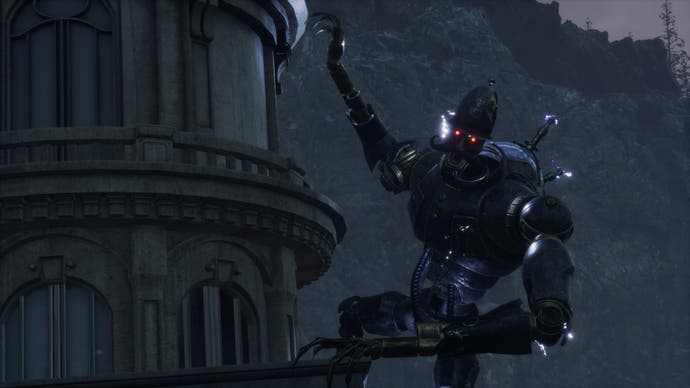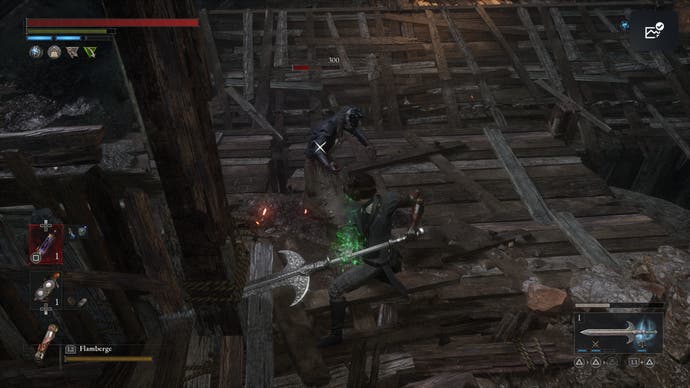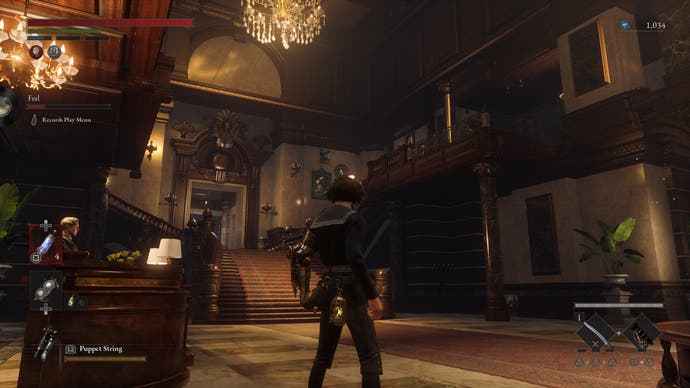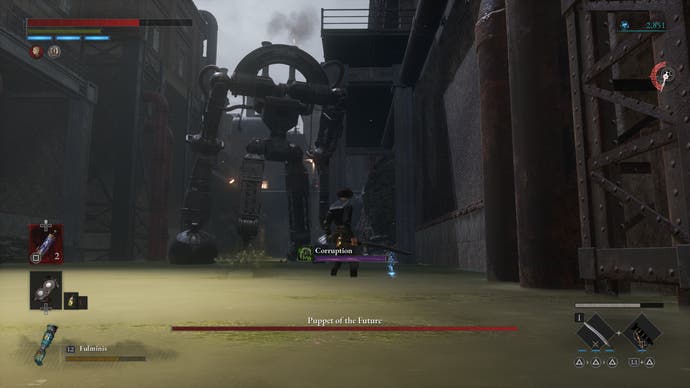Lies of P review - a decent imitation that never quite matches the real thing
String theory.
A game developer has to be pretty brave to attempt a Soulslike, I feel. Just the fact that they’re still called Soulslikes, nearly a decade and a half on (and surely longer than it took for "Doom clones" to turn into first-person shooters), is probably a sign. FromSoftware just keeps banging out top notch examples of a genre they created, and follow-ups, in Bloodborne, Sekiro and Elden Ring, that all have their own distinct variances from the core template, so plucky pretenders to the throne really need a unique selling point. The Surge has its near-future sci-fi stylings, Nioh leans into character action game combat, and Jedis Fallen Order and Survivor combine Uncharted-esque traversal with a little movie licence from the seventies. New contender Lies of P has, umm, puppets.
Okay, it’s a little more than that; it’s a reimagining of the classic children’s tale Pinocchio. I won’t call it grimdark or anything, because the original was pretty grim and even the Disney movie terrified me as a kid, granting some recurring whale-based nightmares. It’s more of a “catering to people who think overpriced knock-off shirts of gothed-up Disney characters are cool” reimagining. I've got American McGee on the phone here from Y2K.
It doesn’t help matters that this USP isn’t unique. The Victorian-era European city setting and overall design drew immediate comparisons to Bloodborne, which having actually played it, is a little unfair. Lies of P actually copies from Miyazaki and co's entire repertoire. Our little lad’s gadget-laden prosthetic arm and emphasis on parrying come straight from Sekiro, while there are a multitude of sections that feel like Souls knock-offs. Sure, some influences are fine, but when you’re edging along wooden scaffolds positioned high over a pool of poisonous sludge while enemies pelt you with even more poison, you can’t help but think that you’re being subjected to the video game equivalent of a cover band.
Constantly being reminiscent of better games doesn’t do Lies of P any favours. It’s much harder to forgive any shortcomings when everything feels like a From tribute/ripoff (delete as your current charitableness dictates) than when you’re offing stormtroopers with a lightsaber. Which is a shame, because despite all my cynicism, I had a good time with it. The combat fundamentals are solid and running around the city of Krat hacking up puppets and weird zombie creatures is fun. I didn’t play the beta with the allegedly dodgy dodging, but the tuned up evasive manoeuvres get the job done and I found myself relying more on parrying anyway.
As you’d expect, parrying an attack negates all damage and a couple of twists render it an especially effective tactic. First, one of Lies of P’s pilfered mechanics is the Bloodborne-style ability to regain lost health by immediately attacking, but it only kicks in if you block the attack. It means that even if you don’t have a particularly sturdy weapon, a just-missed parry that turns into a block will allow you to negate a good bit of damage. It’s a nice touch that makes blocking effective without resulting in an overly-passive combat style. There are also no attacks that you can’t parry, but there are attacks that you can’t dodge. Sometimes enemies will glow red, signifying that you’ve got one of those big blows incoming. It’s possible to get completely out of the way, but you can’t block or dodge through them. On top of the fact that parrying generally leaves you in a better position to counterattack, it was absolutely my go to defensive option.


The big, satisfying clangs of a parried blow and the meaty hits you can dish out in return helped make the moment to moment experience of the game good fun. It looks very pretty on my shiny new PS5 and the sound and music are excellent, with the gramophone records you can take back and play at the hotel that serves as your base camp being highlights. The problem with Lies of P is that it’s good, but it’s not quite good enough. FromSoftware’s games grew from cult hits to massive tentpole releases in large part because they’re tough, but fair (the odd booby-trapped chest aside). Very rarely can challenges not be overcome with patience and ingenuity. When you die it’s almost always your fault.
Lies of P doesn’t manage to get that right. Too often you find yourself trapped in impossible situations, dying because you didn’t do the exact right thing at the exact right time. You’ll get blocked into a corner, unable to see attacks to parry them and physically incapable of dodging past the enemies. Some enemies can knock you down with one attack and then repeatedly pummel you into the ground, and all you can do is watch as your almost-full health bar disappears. Being hit even once by the aforementioned Poundland Blight Town crap-flingers will see you plummet to your death as the knockback is so strong. Some of these issues can be alleviated somewhat by upgrading your P-Organ (yes, it’s really called that) but the way these upgrades are gated means that you’re unlikely to have them when you need them the most.
It’s exacerbated by the level design, which is Lies of P’s weakest point. It’s familiar bonfires, locked doors and ladders territory, and there are some hints of greatness, but far too often there are long stretches of either empty territory or densely-packed murder puppets that make running back through them a chore. The environments lack a certain spark, being neither convincingly real locations nor fun to explore, feeling like a sort of theme park facade, albeit an attractive one. I’m also going to criticise the complete absence of difficulty options here - an accessibility tool that should be ever-present in action games today.


The story is, well, it’s there. It’s hard to get drawn into narrative when so much of it is an obvious contrivance to create analogues for systems and mechanics from Bloodborne and Dark Souls. And while I adore the cryptic storytelling style of those games, it really doesn’t work as well when, instead of slowly stagnating undead and half-mad beasts, you’re surrounded by tight-lipped people hanging out in a luxury hotel who are expecting you to save them while telling you little and charging you through the nose for goods and services. They’re taking the P, if you ask me.
Lies of P is consistently weakest where it cleaves too strongly to the From Software formula and strongest where it innovates. Weapons for instance can be broken down into two components: a blade (or equivalent bashy/stabby bit) and a handle, which can then be recombined however you like. The blade dictates the type and amount of damage done, while the stat scaling and move set are attached to the handle. Each component has a special move, like a unique attack or adding extra element damage, providing even more reason to experiment. Only the blade part is upgraded in typical Soulslike fashion, the handles can just have their stat scaling slightly tweaked. You can invest in a blade early on and it doesn’t feel like you’re wasting resources or locking yourself into one style of combat because you can just stick it on a different handle later. But then the whole system is somewhat spoiled by boss soul weapons being fixed single pieces.
At times, Lies of P is clumsy and frustrating, but there’s a solid core of Soulslike fun to be had and a few glimmers of greatness. It leaves me hoping that the team has the confidence to step out of From Software’s shadow with their next game. To push the cover band analogy further, it’s highly unlikely that they’ll be able to beat the originals at their own game, but the talent and passion to make their own material something special is clearly present, if only they tapped into it a little more.







